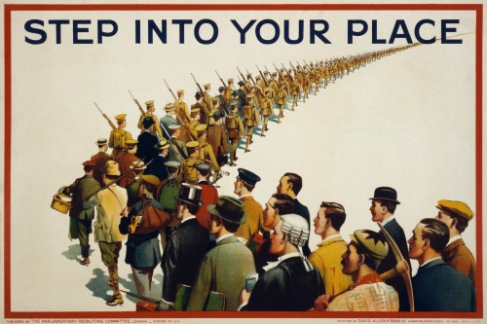The conscious and intelligent manipulation of the organized habits and opinions of the masses is an important element in democratic society. Those who manipulate this unseen mechanism of society constitute an invisible government which is the true ruling power of our country.
We are governed, our minds molded, our tastes formed, our ideas suggested, largely by men we have never heard of. This is the logical result of the way in which our democratized society is organized. Vast numbers of human beings must cooperate in this manner if they are to live together as a smoothly functioning society…
In theory, every citizen makes up his mind on public questions and matters of private conduct. In practice, if all men had to study for themselves the abstruse economic, political, and ethical data involved in every question, they would find it impossible to come to a conclusion [about] anything. We have voluntarily agreed to let an invisible government sift the data and high-spot the outstanding issue so that our field of choice shall be narrowed to practical proportions. From our leaders and the media they use to reach the public, we accept the evidence and the demarcation of issues bearing upon the public question; from some ethical teacher, be it a minister, a favorite essayist, or merely prevailing opinion, we accept a standardized code of social conduct to which we conform most of the time.
In theory, everybody buys the best and cheapest commodities offered him on the market. In practice, if everyone went around pricing, and chemically tasting before purchasing, the dozens of soaps or fabrics or brands of bread which are for sale, economic life would be hopelessly jammed. To avoid such confusion, society consents to have its choice narrowed to ideas and objects brought to it[s] attention through propaganda of all kinds. There is consequently a vast and continuous effort going on to capture our minds in the interest of some policy or commodity or idea…
Some of the phenomena of this process are criticized – the manipulation of the news, the inflation of personality, and the general ballyhoo by which politicians and commercial products and social ideas are brought to the consciousness of the masses. The instruments by which public opinion is organized and focused may be misused. But the organization and focusing are necessary to orderly life.
Edward Bernays, excerpt from Propaganda
Support the Troops…
1-113 of the Counterinsurgency Field Manual states, “The primary objective of any COIN [counterinsurgency] operation is to foster development of effective governance by a legitimate government.” It goes on to say in 1-120 to 1-121 that instating or “restoring legitimacy requires the use of all instruments of national power. A COIN effort cannot achieve lasting success without the HN [host nation] government achieving legitimacy.” The emphasis here – the success of the mission – is two-fold: 1) establishing a legitimate government, and 2) that doing so requires all instruments of national power, not solely the military. The goal here is different than that of most previous wars, which was to simply defeat the enemy; against insurgency, the mission is to, build a legitimate government, i.e. nation building.
The manual gets specific in 2-2, stating that the most effective way of achieving this goal is the “integration of civilian and military efforts.” 2-5 goes on to state that, “Durable policy requires balancing the measured use of force with an emphasis on nonmilitary programs.” And while the military must perform most of those government-legitimizing functions, 2-40 clearly articulates, “In COIN it is always preferred for civilians to perform civilian tasks.” When enough security is established, these functions need to be transferred from military to civilian leadership and control.
So what does this mean, exactly? First, it means that this subset of war, insurgency, requires a different approach and commitment than the traditional wars of the past. Second, as it relates to the commitment required, that U.S. civilians have a much more important role to play in these types of wars. Specifically, it requires civilians to go into war zones after they’ve be secured by the military to a certain degree. This and the Support and Stability Operations manual direct government and nongovernmental organizations to lead the effort, to be followed by the private sector would soon after to support these operations in greater capacity. Civilians leading civilians: this is how one best legitimizes a government, because host nations tend to resent and resist militaries installing “foreign” governments.
So what does this mean to the average American? What it means is that to be safe from insurgencies we have to get involved. We have to seek careers in the support sector; we have to volunteer for international organizations; we have to be willing to support our troops by assisting them in their mission – and sometimes this may mean dying in foreign countries. It isn’t ideal necessarily, and it certainly isn’t an easy sell, but it is what is required of us if we are to secure our own nation from these types of non-state actors in these unconventional times. Supporting the troops – really supporting them, as opposed to cheering them on, safe from our living rooms – means going out with them. Helping to take over the stabilizing role so that they may engage more in their fighting function, so that each organization can do what each does best. And this means more than affixing a yellow ribbon sticker to a car bumper or window.
As we pass the 10-year mark of our invasion of Iraq, and nearing the 12-year mark of our war in Afghanistan, let us keep in mind what is at stake, what it requires of us, and how we can give back to those brave men and women who have given so much already for us.


